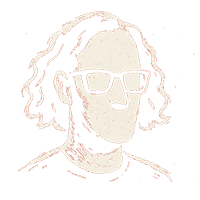Why So Serious?
The question Sheon Han poses — “Is Ruby a serious programming language?” — says a lot about what someone thinks programming is supposed to feel like. For some folks, if a tool feels good to use… that must mean it isn’t “serious.”
Ruby never agreed to that definition. If it did, I missed the memo.
If you arrived late, you missed a chapter when the language felt like a quiet rebellion. The community was small. The energy was playful. Ruby tapped you on the shoulder and asked what would happen if programming didn’t have to feel intimidating… what might be possible if clarity and joy were allowed.
The early skeptics were predictable. Java architects. Enterprise traditionalists. Anyone whose identity depended on programming being a stern activity. They said Ruby was unserious. And the community mostly shrugged… because we were busy building things.
Ruby made programming approachable. Not simplistic… approachable. That distinction matters. It helped beginners see the path forward. It helped small teams build momentum before anxiety caught up. It helped experienced developers rediscover a sense of lightness in their work.
This is why bootcamps embraced it. Why tiny startups found traction with it. Ruby wasn’t trying to win benchmarks… it was trying to keep you moving. When you’re creating something new, that matters far more than the theoretical purity of your type system.
And yes… critics love the Twitter example. But look closer. Ruby carried them further than most companies will ever reach. They outgrew their shoes. That’s not an indictment… that’s success.
In my world… running a software consultancy for a few decades… I’ve never seen a team fail because they chose Ruby. I have seen them fail because they chose complexity. Because they chose indecision. Because they chose “seriousness” over momentum. Ruby just needed to stay out of the way so people could focus on the real work.
And while folks keep debating its “credibility,” the receipts are plain. Shopify moves billions through Ruby. Doximity supports most physicians in the US with Ruby. GitHub held the world’s source code together for years using Ruby. This isn’t sentiment. This is proof.
What outsiders often miss is the culture. Ruby attracts people who care how code feels to write and read. Not because of nostalgia… but because most of our careers are spent living inside someone else’s decisions. Joy isn’t a luxury. It’s how sustainable software gets made.
I don’t know Sheon personally, but I’m guessing we have as much in common about music tastes as we do whether _why’s Poignant Guide to Ruby made any sense to them. And that’s fine. That’s actually the point.
And on that note… there’s one thing I genuinely agree with Sheon about. Ruby doesn’t seem to be for them. That’s not a failure of the language. That’s just taste. Some people like jazz. Some like metal. Some prefer the comfort of ceremony. Ruby has never tried to convert anyone. It simply resonates with the people it resonates with.
Since we’re noting taste, I’ll add something of my own. As an atheist, it feels oddly appropriate to mention my lack of religion here… mostly because it mirrors how strangely irrelevant it was for the article to bring up Matz’s religion at all. It didn’t add context. It didn’t deepen the argument. It was just… there. A detail reaching for meaning that wasn’t actually connected to the point.
Sheon mentions approaching Ruby without “the forgiving haze of sentimentality.” Fair enough. But the sentiment wasn’t nostalgia. It was gratitude. Gratitude for a language that centers the human being. Gratitude for a community that believes programming can be expressive. Gratitude for a tool that makes the work feel lighter without making it careless.
But here’s the part the discourse keeps missing… this isn’t just about the past.
The future of programming is fuzzy for everyone. Anyone claiming to have the master recipe for what’s coming is bullshitting you. The future won’t be owned by one paradigm or one language or one ideology. It’ll be a blend… a messy collage of ideas, old and new, borrowed and rediscovered.
And in that future… Ruby’s values aren’t relics. They’re an anchor. Readability will matter more as AI writes more code. Maintainability will matter more as products live longer. Joy will matter more as burnout becomes the default state.
And if you need a reminder that seriousness isn’t the reliable signal people wish it were…
The serious candidate doesn’t always get elected.
The serious musician doesn’t always get signed.
The serious artist doesn’t always sell.
The serious man doesn’t always find a serious relationship.
The serious startup doesn’t always find product-market fit.
The serious engineer doesn’t always write the code that lasts.
The serious rewrite doesn’t always solve the real problem.
Culture doesn’t reliably reward the serious. Neither does business.
It rewards the resonant. The clear. The human. The work that connects.
Ruby has always leaned toward that side of the craft. Toward the part of programming that remembers people are involved. Toward the part that says maybe the code should serve the team… not the other way around.
And honestly… I think unserious people will play an important role in the future too. The curious ones. The playful ones. The ones who keep the door propped open instead of guarding it. They’ll keep the industry honest. They’ll keep it human.
So is Ruby “serious”? I still think that’s the wrong question.
A better one is… does Ruby still have something meaningful to contribute to the next chapter of software?
It does.
And if that makes it “unserious”… maybe that’s exactly why it belongs in the conversation.
